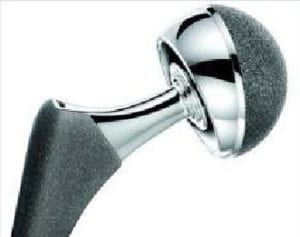UK Ban on Metal-on-Metal Hips at National Health Hospitals
It is no surprise that the government of the United Kingdom has taken a move to ban metal hips made by leading medical device manufacturers. The government funds surgeries at its National Health Service Hospitals (NHS) and was tired of the high failure rates and costs associated with early revision surgeries.Guidance came from a health watchdog group – National Institute for Health and Care Excellence (NICE) and its recent study of 17,000 patients with metal-on-metal (MoM) devices. Finding a failure rate as high as 43 percent after nine years, not only means to a patient revision (replacement) surgeries, but the possibility that the metal components made of cobalt and chromium have left behind toxic particles to enter the bloodstream, muscle, and tissue.
Even among the hip resurfacing medical devices which leave behind more bone and are geared for the younger, more active patient, the failures was 14 percent after five years and 36 percent after nine years, according to an investigative report in The Telegraph.
Resurfacing hip replacements include the Adept; Durom; Recap Magnum; Conserve Plus and Cormet 2000.
Not surprisingly, Johnson & Johnson’s (J&J) DePuy had one of the worse failure rates for its ASR MoM hip – 13 percent within five years. In the UK there is a safety alert about metal toxicity and two models of MoM hip are off the market.
Two metal hip replacements will remain but even the best of them have about four times the failure rate of ceramic and/or plastic hip prosthesis.
In the future the NHS will seek those devices with a failure rate less than five percent which would effectively drive every MoM hip from consideration.
J&J initiated a global recall of 93,000 ASR MoM hips in 2010, and since then more than 11,500 lawsuits have been filed alleging that the product is defective. The company is phasing out production of MoM and ceramic-on-metal hips by the end of next year because of what it calls a declining market.
Share This



